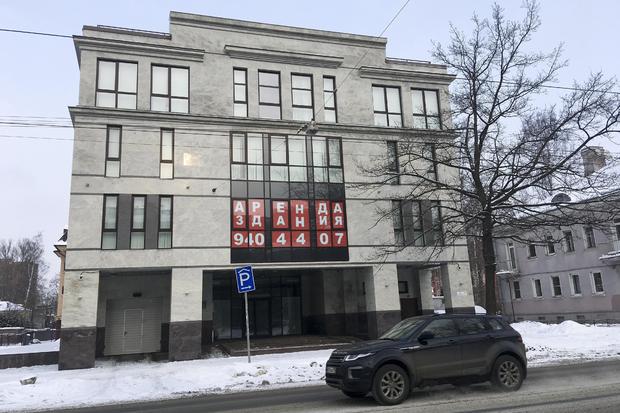Russia rejects damning reports on pro-Trump election meddling
Moscow -- The Kremlin has rejected as baseless reports about a Russian political disinformation campaign on U.S. social media. Reports released by the Senate intelligence committee on Monday suggested that Moscow's efforts to help Donald Trump in his 2016 presidential campaign through social media were more far-reaching than originally thought, with troll farms working to discourage black voters and "blur the lines between reality and fiction."
Dmitry Peskov, spokesman for Russian President Vladimir Putin, rejected the claims, saying the reports sought to shift blame for social tensions in the U.S. to Russia without offering proof.
Peskov reaffirmed a strong denial of any meddling in the U.S. politics.
He said in Tuesday's call with reporters that "the Russian government hasn't had anything to do with any kind of interference."
What the reports accuse Russia of doing
As CBS News' Olivia Gazis reported, two new independent analyses revealed this week show the Russian government's efforts to influence the 2016 presidential election were sprawling, multifaceted and sophisticated, affecting millions of users in the U.S. and persisting long after the election was over.
Some content that was initiated by the Russian government, operating through the Internet Research Agency (IRA), still lives on social media platforms, and the Kremlin's interference operations are likely to continue – now and through 2020, the experts who conducted the research said.
The extensive reports, one authored by cybersecurity firm New Knowledge and the other jointly by University of Oxford researchers and Graphika, which specializes in social media analysis, are the first of their kind to detail the kinds of active measures Russian actors employed to exploit social divisions, grow distrust in the U.S. government and media outlets, and erode voters' confidence in democratic processes.
The reports were crafted chiefly on the basis of data provided by social media companies to the Senate Select Committee on Intelligence, which is conducting an investigation into Russia's interference in 2016. The Committee welcomed the research effort without endorsing either report's findings.
"This newly released data demonstrates how aggressively Russia sought to divide Americans by race, religion and ideology, and how the IRA actively worked to erode trust in our democratic institutions," Senate Intelligence Committee Chairman Richard Burr, R-N.C., said in a statement. "Most troublingly, it shows that these activities have not stopped," he said.
"These attacks against our country were much more comprehensive, calculating and widespread than previously revealed," added Democrat Vice Chairman Mark Warner, D-Va. "This should stand as a wake up call to us all that none of us are immune from this threat, and it is time to get serious in addressing this challenge."
The Oxford report, which also drew from data provided to the House Permanent Select Committee on Intelligence, said IRA's activities began on Twitter in 2013, before evolving into a "multi-platform strategy" that included Facebook, Instagram, YouTube and other platforms.
Reports show "clear bias for then-candidate Trump"
Notably, the reports' conclusions support those of the Intelligence Community Assessment issued in 2017, which found with high confidence that Russian president Vladimir Putin and his government developed a "clear preference" for Donald Trump.
The conclusions are at odds with previous public statements made by some Trump administration officials, including Department of Homeland Security Secretary Nielsen, who has said repeatedly that Russia's goal was primarily to sow division among the U.S. electorate.
"What is clear is that all of the messaging clearly sought to benefit the Republican Party—and specifically, Donald Trump," the Oxford report authors wrote. "While the IRA strategy was a long-term one, it is clear that activity between 2015 and 2016 was designed to benefit President Trump's campaign."
"The IRA had a very clear bias for then-candidate Trump that spanned from early in the campaign and throughout the data set," the New Knowledge report said, citing political content that began in the early primaries.
The Senate Intelligence Committee issued a bipartisan finding earlier this year that confirmed the intelligence community's assessment; the House Intelligence Committee's Republican-issued final report on Russian interference cast doubt on whether Putin's strategic objective was indeed to help elect Mr. Trump.






